Lawyer for Indian diplomat seeks delay in US visa fraud case
Khobragade, who was deputy consul-general in New York, was arrested on Dec 12, charged with one count of visa fraud.
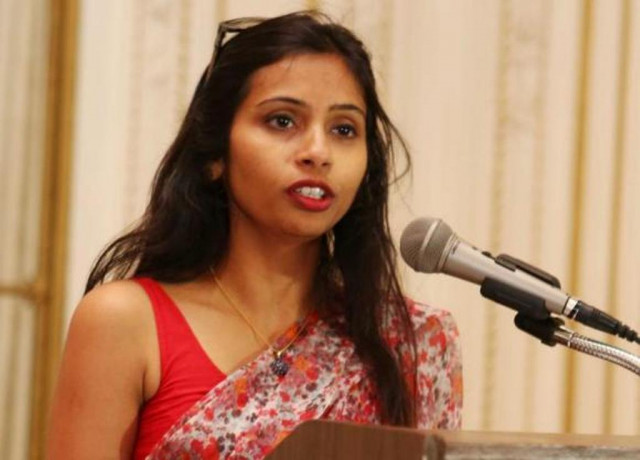
India's Deputy Consul General in New York, Devyani Khobragade, attends a Rutgers University event at India's Consulate General in New York, June 19, 2013. PHOTO: REUTERS
In a letter to a federal magistrate judge in New York, Khobragade's lawyer requested an extension of the time by which the US government must file an indictment or commence a preliminary hearing.
The lawyer, Daniel Arshack, confirmed he filed the letter in court but would not comment about a possible resolution of the case.
Khobragade, who was deputy consul-general in New York, was arrested on December 12 and charged with one count of visa fraud and one count of making false statements about how much she paid her housekeeper.
The case was adjourned until January 13 by which time the government must commence a preliminary hearing or file an indictment.
Arshack asked US Magistrate Judge Sarah Netburn to extend the deadline by 30 days to February 12.
"Significant communications have been had between the prosecution and the defence and amongst other government officials and it is our strong view that the pressure of the impending deadline is counterproductive to continued communications," Arshack wrote.
Preet Bharara, the US attorney in Manhattan whose office is handling the case, however responded saying the plea discussions can continue following the indictment in the case.
"The government is not seeking an extension of the deadline for indictment and therefore there is no motion for the court to decide. At any rate, as the court knows, the timing under which the government seeks an indictment is in the discretion of the government, and the defendant cannot alter that," Bharara wrote in a letter to a federal magistrate judge in New York.
Bharara added that as recently as January 5, the government outlined "reasonable parameters" for a plea that could resolve the case, to which the defendant has not responded.
Khobragade's arrest enraged India, which is demanding that all charges be dropped against her. On the day of her arrest, she was strip-searched. The arresting authority, the US Marshals Service, said the strip search was a routine procedure imposed on any new arrestee at the federal courthouse.
Khobragade was released on $250,000 bail.
In the aftermath of her arrest, India asked to transfer Khobragade to the United Nations.
US State Department spokeswoman Marie Harf said on Monday that India's application to transfer Khobragade's accreditation to the Indian mission at the United Nations, which was made before Christmas, was still under review.
"We've received the request for change in accreditation, but the process is ongoing and no official decision has been made yet to do that. So there's no change in her status as of this point," she told a regular news briefing.
Indian media have said the request to transfer Khobragade to the United Nations was aimed at ending the stand-off with the United States in the hopes that her new diplomatic status could allow New Delhi to bring her home without the prosecution proceeding.
According to UN guidelines on diplomatic privileges and immunities, documents certifying diplomatic immunity, if approved, are usually issued by the US Mission to the United Nations within two weeks of the initial request.
A State Department official said there was no set time period for the process, and noted that the request had been filed just ahead of a period of government holidays.
Harf said the United States hoped to see the case resolved as soon as possible in the interest of the bilateral relationship between India and the United States, which has been strained by the case.
"We don't want this to define our relationship going forward and don't think that it will," Harf said. "If you look throughout the region, if you look at Afghanistan, if you look at energy issues, economic issues, we have a whole host of things we work together on, and those are very important and shouldn't be derailed by this incident. ... (T)he relationship with India is incredibly important, it's vital, and that's what we're focused on."

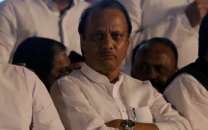
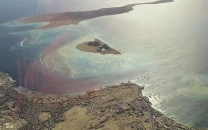
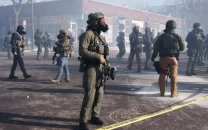
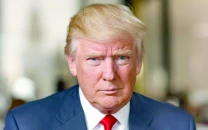
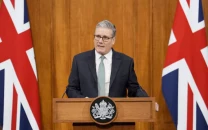
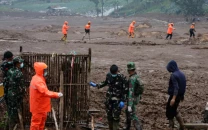












COMMENTS
Comments are moderated and generally will be posted if they are on-topic and not abusive.
For more information, please see our Comments FAQ